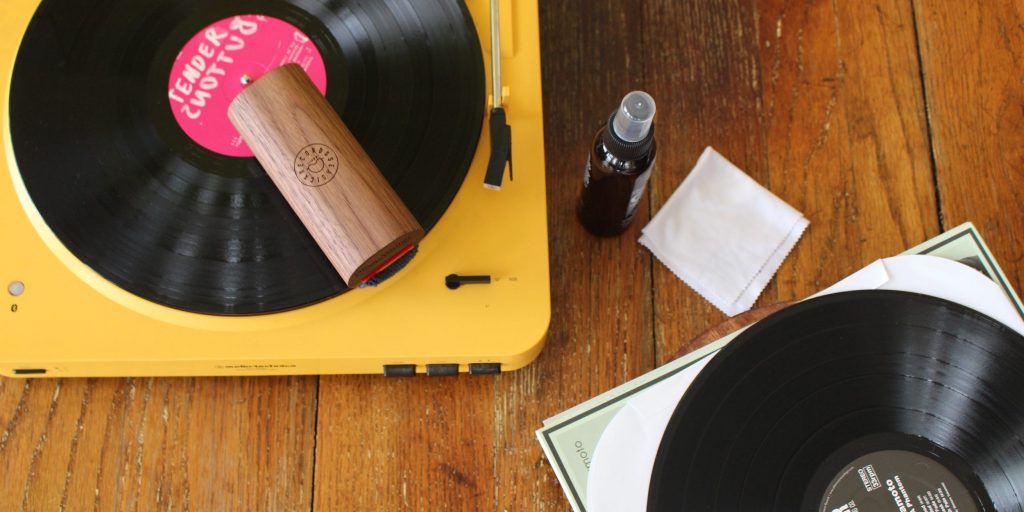- Remove dust from your records with a brush every few plays.
- For a deeper clean, use a wet cleaning solution or invest in a record cleaning machine.
- Storage also has a direct impact on longevity.
- Visit Insider's Home & Kitchen Reference library for more stories.
Once you start amassing a collection of vinyl records, it's only natural to want to keep them in mint condition. Regularly caring for your vinyl can improve the audio quality, and ensure you can enjoy your investment for years to come.
New, unsealed records rarely need cleaning before the first play, but it's a different story for used records. Even still, even new records become dirty over time. Luckily, there are easy ways to rehab dirty records to give you the best quality possible. Here's what you need to know.
Remove dust and dirt with a record brush
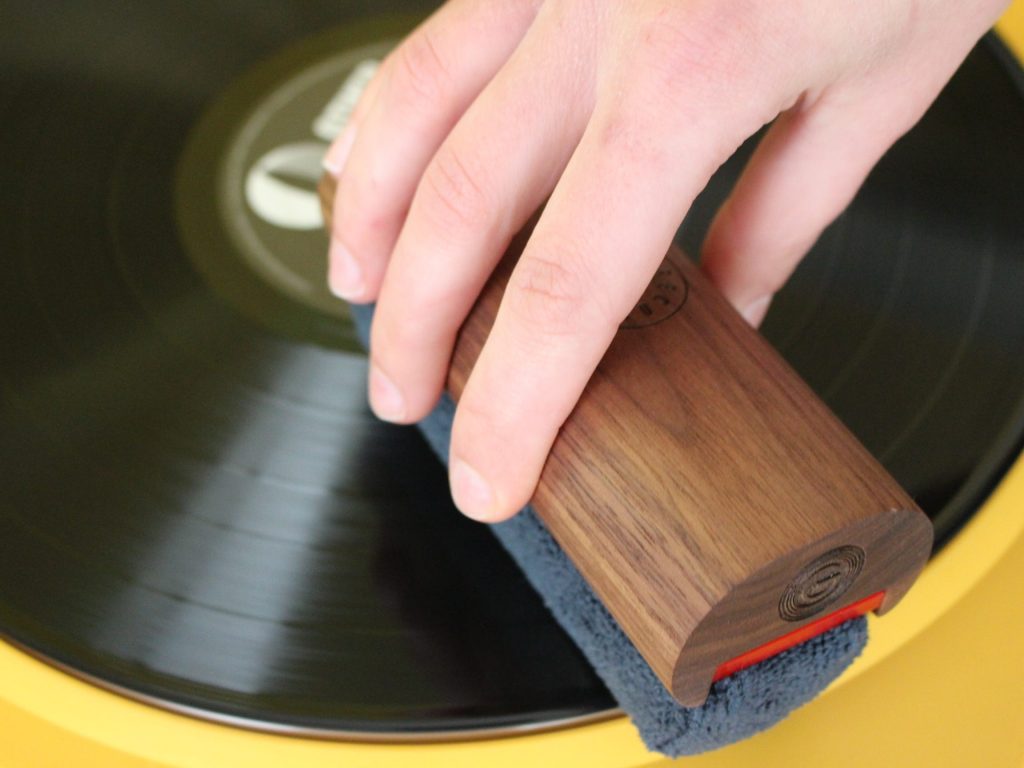
Doyle Davis, the co-owner of Grimeys Records in Nashville, Tennessee, brushes his records with a carbon-fiber brush — like this one from Boundless Audio — before each spin of a record side.
Carbon-fiber brushes are designed to reduce static build-up and go deep into the grooves of a record to remove dirt and dust. "You're removing some static, as well as brushing any dust off the surface of the vinyl before you drop the needle. That's just daily maintenance," Davis says.
Additionally, there's also velvet record brushes. Velvet brushes do not have the anti-static effect, but they're just as good as carbon-fiber brushes at removing dust and debris.
To use the brush, place the record on your turntable and turn it on. As the record spins, use long, gentle strokes and glide the brush along the grooves to dislodge any dust.
Deep-clean with a wet-cleaning solution
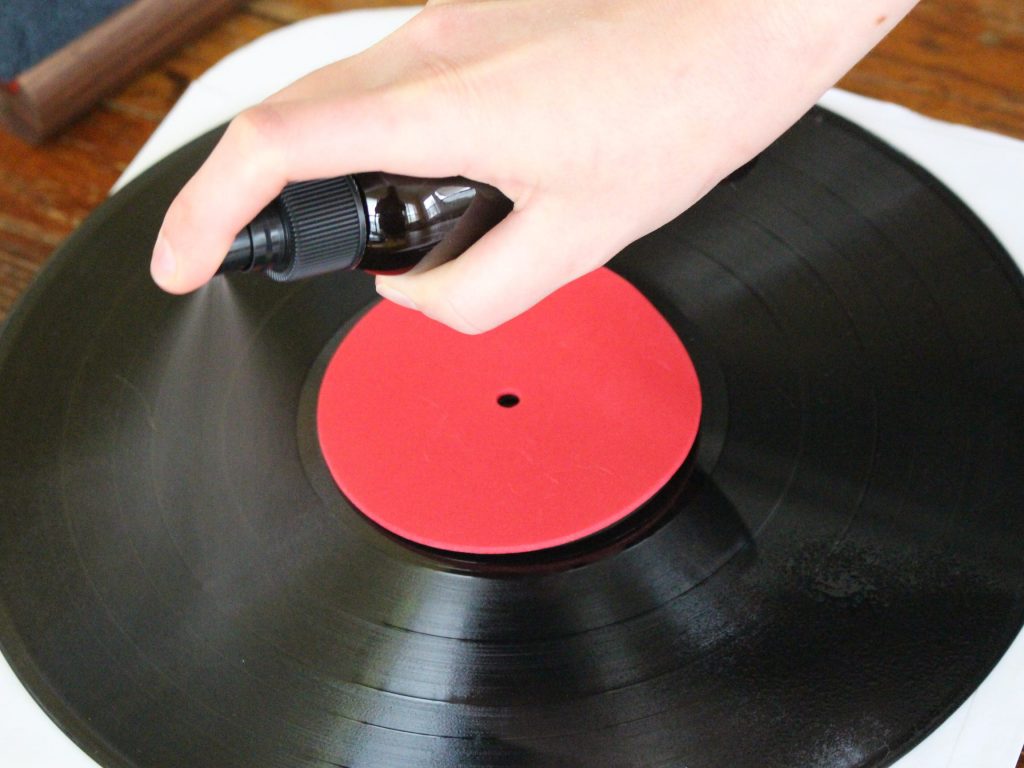
Beyond dust and dirt, records also collect smudges, fingerprints, and fine scratches. These visible imperfections can lead to unwanted playback issues like crackling, popping, and skipping. So if you don't necessarily see it at first, you'll eventually hear it.
After brushing the record, it's a good idea to inspect it — handling the record by its outer edges — for any noticeable marks left behind. Any remaining blemishes can be cleaned with a wet solution.
There are a number of commercial cleaning solutions made specifically for vinyl records. Davis recommends the One Cleaning Solution from Mobile Fidelity. For a homemade solution, you can use one part isopropyl alcohol to 10 parts distilled water — never use undiluted alcohol.
To clean your records with a wet solution, first dust off any surface debris with a record brush. Spray a small amount of the cleaning solution on the surface of the record, being careful to avoid the label. Apply light pressure in a circular motion with a dry cleaning cloth. You can use the record's inner sleeve as a clean surface to work on.
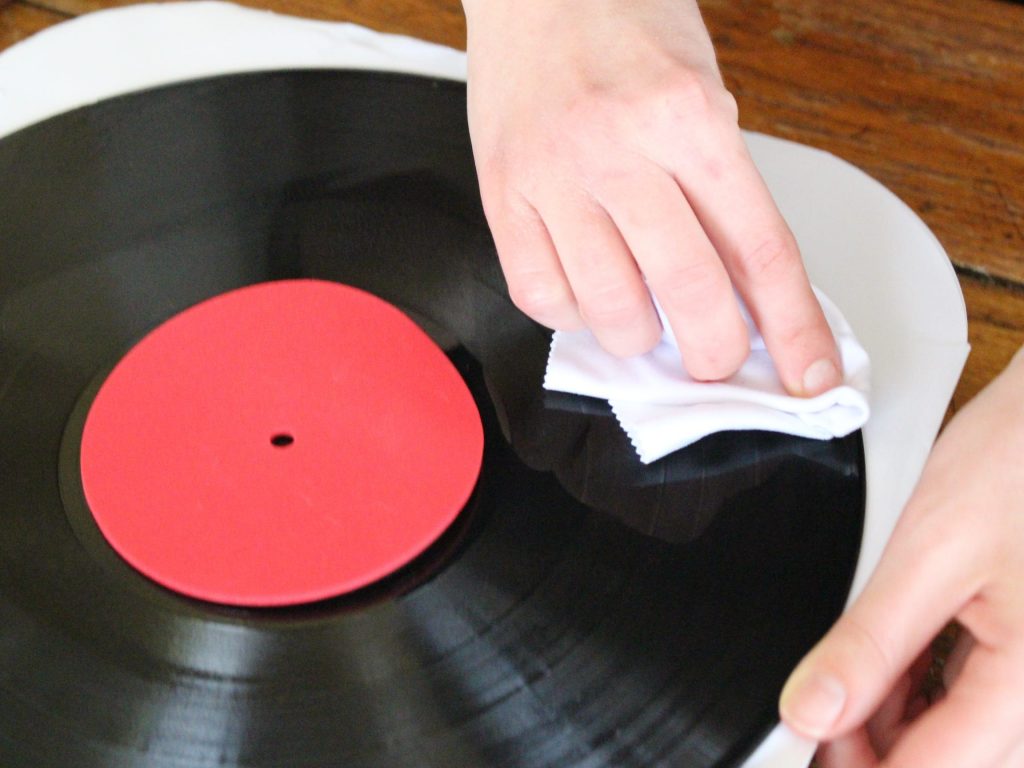
Dry the record with another microfiber cloth or allow it to air-dry completely. Be sure that the record is completely dry before putting it back in the sleeve, as any moisture or dried-on cleaning solution can damage the vinyl or affect the sound quality.
How to correctly place a record in its sleeve
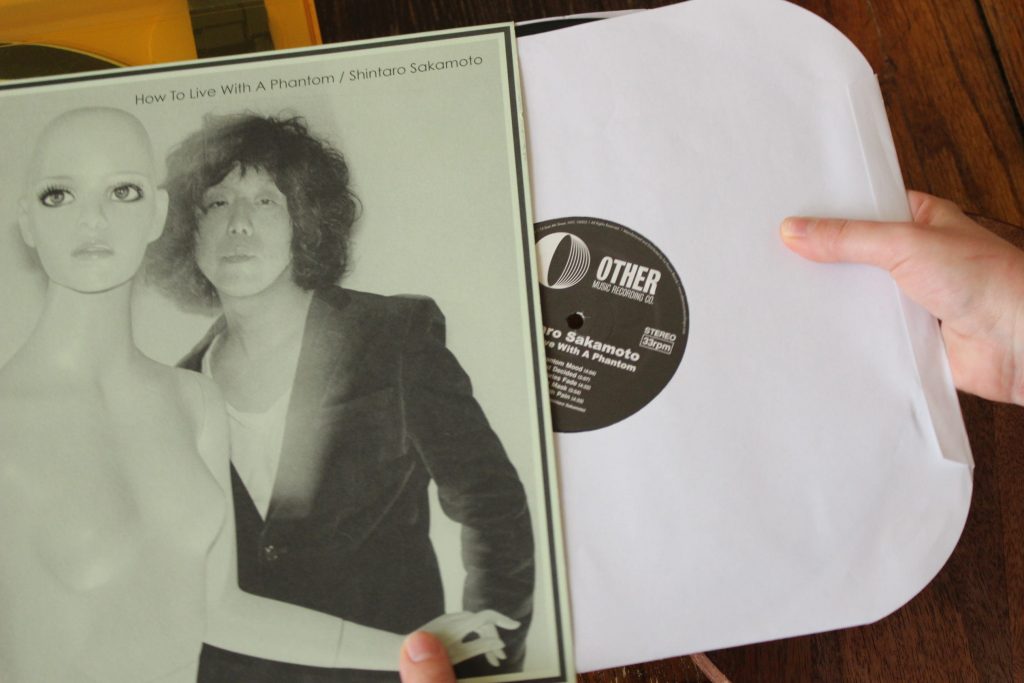
If you want to protect your newly cleaned vinyl from dust particles during storage, the first line of defense is its inner sleeve.
The best way to protect your vinyl is to "lock the sleeve," Davis says.
"Put the record in the inner sleeve, and then put the inner sleeve back in the jacket with the opening of the inner sleeve facing up. So it's up against the top of the jacket line," Davis says. This method will ensure you keep dust and dirt out.
To further protect your records, you can put the entire record jacket inside a clear plastic sleeve, says Cole Wheeler of Goner Records in Memphis, Tennessee. Plastic covers can be especially helpful if you're storing records somewhere that might harbor moisture, such as a basement.
How to store your records correctly
The way you store your vinyl can also make or break the sound quality and longevity.
You should never leave your records stacked on top of each other for long periods of time. "That'll cause warpage," Davis says. Plus, "it's not the best way to keep the covers in good condition, either," Wheeler says.
You should also be sure to keep vinyl records out of direct sunlight.
The best way to store vinyl records is standing straight up, like books on a shelf. "They should be standing up straight," Davis says, adding "not leaning to the left or the right. You shouldn't put them too tight either."
Insider's takeaway
If you have a vinyl record collection, it's important to regularly clean and maintain it to keep it sounding its best.
Before every listen, brush away any surface-level dust and debris with a record brush. For a deeper clean, clean the records by hand with a wet solution or invest in a record cleaning machine.
Whichever cleaning method you choose, you should make sure your vinyl is completely dry before putting it back in its sleeve. To safely store your vinyl collection, you should stand it upright and ensure that it stays out of direct sunlight.
